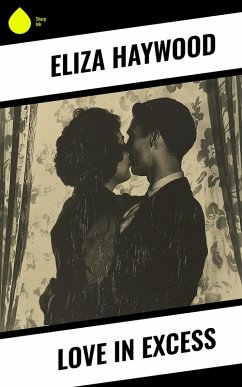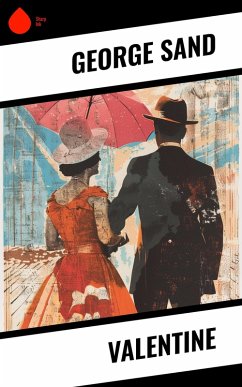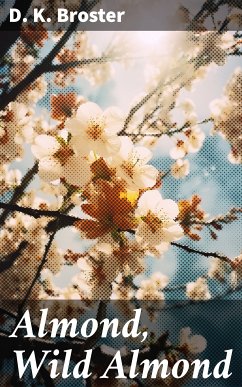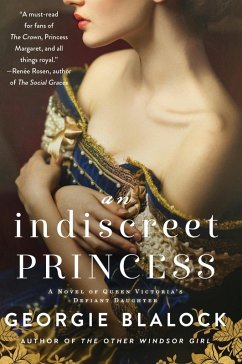
Love in Excess (eBook, ePUB)
Enriched edition. Scandalous Love Stories in the 18th Century Aristocracy
Kommentar: Parsons, Zoe / Redaktion: Good Press

PAYBACK Punkte
0 °P sammeln!
Eliza Haywood's "Love in Excess" is a captivating exploration of the complexities of desire, power, and emotion in the 18th-century novel landscape. Renowned for her sharp wit and intricate characterizations, Haywood employs a mix of prose and dialogue that brings her characters' psychological conflicts to life. Set against a backdrop of romantic entanglements and societal expectations, the narrative navigates themes of passion, betrayal, and the moral implications of love, reflecting the broader cultural conversations relevant to her time, particularly the evolving perceptions of gender and s...
Eliza Haywood's "Love in Excess" is a captivating exploration of the complexities of desire, power, and emotion in the 18th-century novel landscape. Renowned for her sharp wit and intricate characterizations, Haywood employs a mix of prose and dialogue that brings her characters' psychological conflicts to life. Set against a backdrop of romantic entanglements and societal expectations, the narrative navigates themes of passion, betrayal, and the moral implications of love, reflecting the broader cultural conversations relevant to her time, particularly the evolving perceptions of gender and sexuality. A prolific writer and a key figure among early novelists, Eliza Haywood's life experiences as a woman navigating the literary scene of the early 1700s undoubtedly informed her candid portrayal of female agency and desire. Her own tumultuous romantic encounters and advocacy for women's voices in literature permeate her works, making "Love in Excess" not only a reflection of her personal journey but also a commentary on gender dynamics and the representation of emotion in a patriarchal society. Readers seeking a rich, multifaceted depiction of love should delve into "Love in Excess." Haywood's intricate character development and her bold exploration of romance and morality provide an engaging narrative that resonates with contemporary discussions on love and power. This novel remains a significant work for those interested in the evolution of the novel and the intricate interplay between gender and literature. In this enriched edition, we have carefully created added value for your reading experience: - A succinct Introduction situates the work's timeless appeal and themes. - The Synopsis outlines the central plot, highlighting key developments without spoiling critical twists. - A detailed Historical Context immerses you in the era's events and influences that shaped the writing. - A thorough Analysis dissects symbols, motifs, and character arcs to unearth underlying meanings. - Reflection questions prompt you to engage personally with the work's messages, connecting them to modern life. - Hand-picked Memorable Quotes shine a spotlight on moments of literary brilliance. - Interactive footnotes clarify unusual references, historical allusions, and archaic phrases for an effortless, more informed read.
Dieser Download kann aus rechtlichen Gründen nur mit Rechnungsadresse in A, B, BG, CY, CZ, D, DK, EW, E, FIN, F, GR, H, IRL, I, LT, L, LR, M, NL, PL, P, R, S, SLO, SK ausgeliefert werden.













